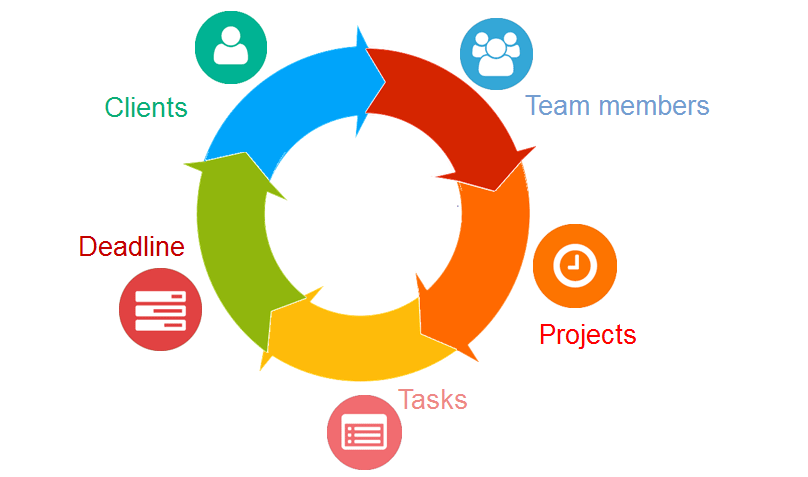What is project management?
Project management is the application of processes, methods, knowledge, skills and experience to achieve the project objectives.
General
A project is a unique, transient endeavor, undertaken to achieve planned objectives, which could be defined in terms of outputs, outcomes or benefits. A project is usually deemed to be a success if it achieves the objectives according to their acceptance criteria, within an agreed timescale and budget.
A key factor that distinguishes project management from just ‘management’ is that it has this final deliverable and a finite time span, unlike management which is an ongoing process. Because of this a project professional needs a wide range of skills; often technical skills, and certainly people management skills and good business awareness.
The core components of project management are:
- defining the reason why a project is necessary;
- capturing project requirements, specifying quality of the deliverables, estimating resources and timescales;
- preparing a business case to justify the investment;
- securing corporate agreement and funding;
- developing and implementing a management plan for the project;
- leading and motivating the project delivery team;
- managing the risks, issues and changes on the project;
- monitoring progress against plan;
- managing the project budget;
- maintaining communications with stakeholders and the project organization;
- provider management;
- closing the project in a controlled fashion when appropriate.

Why do we use project management?
Project management is essentially aimed at producing an end product that will effect some change for the benefit of the organisation that instigated the project. It is the initiation, planning and control of a range of tasks required to deliver this end product. Projects that require formal management are those that:
- produce something new or altered, tangible or intangible;
- have a finite time span: a definite start and end;
- are likely to be complex in terms of work or groups involved;
- require the management of change;
- require the management of risks.
Investment in effective project management will have a number of benefits, such as:
- providing a greater likelihood of achieving the desired result;
- ensuring efficient and best value use of resources;
- satisfying the differing needs of the project’s stakeholders.


